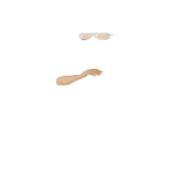路維係咩來頭?
2007-11-15 9:23 am
德國教練路維...
回答 (1)
2007-11-16 1:39 am
✔ 最佳答案
Joachim "Jogi" Löw (born 3 February 1960 in Schönau im Schwarzwald is the coach of the German national football team and a former German football striker.Career as a player
In 1978 Löw started his playing career with Second League team SC Freiburg. He returned to the club twice (1982, 1985). In 1980 Löw joined VfB Stuttgart in the Fußball-Bundesliga, but he had difficulties in establishing himself and played only four matches (no goals). In the 1981/82 season Löw played for Eintracht Frankfurt (24 matches, five goals), but he returned to Freiburg the following year. 1982/83 he scored 8 goals (34 matches), 1983/84 he scored 17 goals (31 matches) in the 2. Fußball-Bundesliga. Afterwards he returned to the Bundesliga with Karlsruher SC, but again he failed to succeed and scored only two goals in 24 matches. Later, he joined Freiburg again for four years (116 matches, 38 goals). Löw concluded his career in Switzerland, where he played for FC Schaffhausen (1989-1992) and FC Winterthur (1992-1994).
Löw played four times for the German national under-21 football team.
Head coach of Germany
On 12 July 2006, following Klinsmann's decision to not renew his contract, Löw was named as the new head coach of Germany. Löw obtained a contract for two years and announced that he wants to continue in the philosophy developed by Klinsmann and himself. He declared that his aim is to triumph at Euro 2008. His first game in charge, a friendly against Sweden in Gelsenkirchen on August 16, 2006, was a 3-0 success in which Miroslav Klose scored twice and Bernd Schneider scored the other. With wins over Republic of Ireland and San Marino Löw also had a successful start in qualifying for Euro 2008. On Saturday October 7, 2006 the German "Elf" won 2-0 against Georgia in the Ostseestadion in Rostock, which was the 4th consecutive success for Joachim Löw and his team, in fact the best start of a new head coach of the German national team ever. The team extended this record to five wins in the next challenge, the Euro 2008 qualifier against Slovakia in Bratislava on Wednesday October 11, with an effective 4-1 victory. The Slovaks' strike was also the first goal conceded by Germany under Löw's reign after a total of 418 minutes played with clean sheets. The next match saw the end of Löw's perfect record, with the November 15 qualifier in Nicosia against Cyprus (Euro 2008 qualification match) ending in a disappointing 1-1 draw. On February 7, 2007, in a friendly in Düsseldorf, Germany beat Switzerland 3-1. On the 24 March 2007 a 2-1 away-win against the Czech Republic (the strongest competitors for the Euro 2008 Qualifying Group D lead). The winning streak ended on March 28, 2007, right after the triumph against the Czechs when Löw used an experimental squad against Denmark where the team lost 0-1. After that match they won against San Marino 6-0 and Slovakia 2-1 for the Euro 2008 qualifiers and also against England 2-1 at the new Wembley Stadium and Wales 2-0. This result means that following the match Löw's record stood at 11 wins, 1 loss, and 1 draw from 12 matches and a 41:6 goal difference.
Löw adopts with the German National Team the same philosophy his predecessor used. To a great extent the very same formation is being used, that is 4-4-2 (diamond variation) with particular emphasis on wing backs. With Philipp Lahm developing into an obvious world class talent, Löw relies on him heavily either as a left wing back or a right wing back. The midfield structure is based mainly on a pivotal midfield defender, preferably played by Torsten Frings, who would smoothly rotate the ball among a sharply thrusting midfield. This Klinsmann aggressive approach has been implemented since the preparation for the 2006 world cup. The players are becoming more adapted to it and they have markedly matured acquiring better skills and efficiency in imposing these tactics on their opponents.
參考: sor for no Chi, wiki
收錄日期: 2021-04-13 14:30:04
原文連結 [永久失效]:
https://hk.answers.yahoo.com/question/index?qid=20071115000051KK00234

